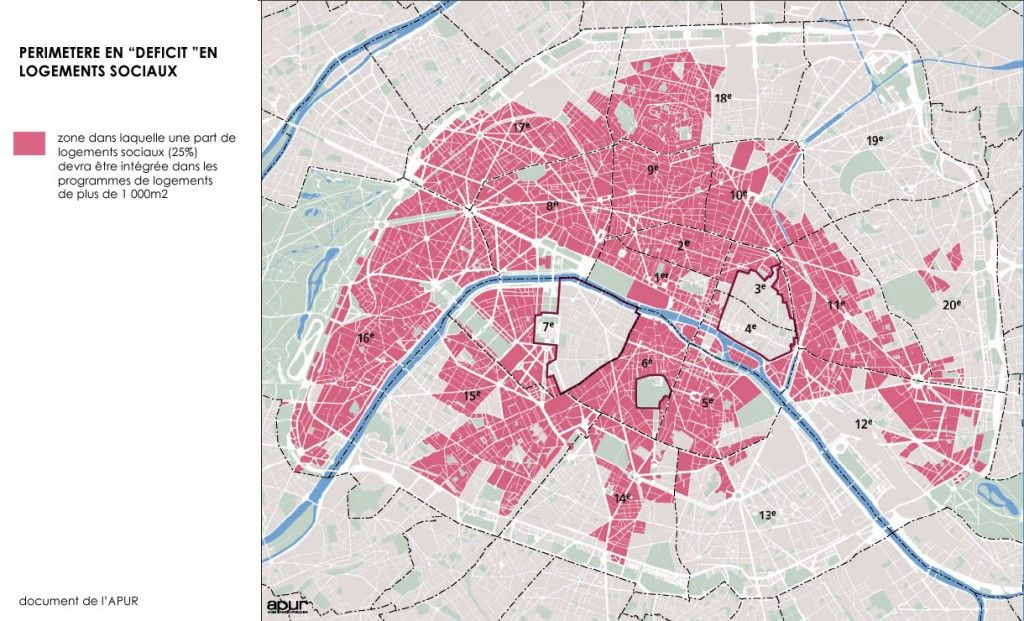It is rather true.
In the City of Paris, you will find gentrification everywhere. The 13th arrondissement is quite gentrified but because it has a high ratio of social housing it keeps a population with mixed incomes.
The 19th arrondissement is the area with the lowest median income in the City of Paris and it is the arrondissement with the highest ratio of social housing.
In pink, the part of the City of Paris definied with having a social housing deficit (less than 25%).
Note that the Marais and the east part of the 7th are excluded

This is why you will find no address in the 13th, 19th and few address in the 20th arrondissement but plenty in the 2nd, 10th, 11th and the western 18th arrondissement.
Anyway, this measure will have no effect to slow down gentrification. This will mostly scare owners of appartments who will be more reluctant to sell.
That does not prevent the owners to choose wealthier tenants.
This is more like a media stunt than anything else as usual.



